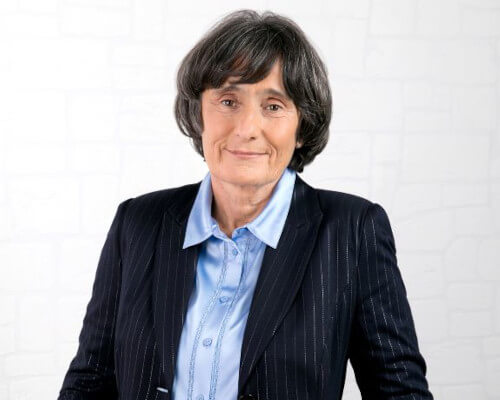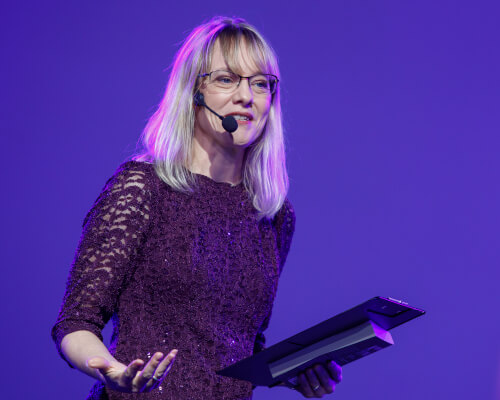
Alexander Tsvetanov is only 19, but he is already an IT veteran. He has been taking programming courses since third grade, exceling in each one, got his first job in tech at 16, and is currently a software engineer at cloud computing giant VMWare. He is also pursuing a degree in industrial engineering at Technical University Sofia and working on his own startup project with friends.
For two years in high school, Irina Hristova, now 21, commuted from her hometown, Lovech, to Sofia to attend IT courses. Then in her senior year, she turned to IT full-time, moving to the capital and finishing high school as a part-time student. The move helped her become a sought-after junior expert in the tech sphere, where she still works even as she juggles coursework at Sofia University’s computer science program.

Dimitar Tatarski loved his game development courses and his teachers’ approach so much he became a teacher himself — at 17. He kept up with his vocation during his two-year employment as a program developer at software company xQuadro and through his university studies. At 21, he already has an impressive five years of experience in teaching.
Alexander, Irina, and Dimitar are graduates of Telerik Academy School, the leading provider of free digital education to youth in Bulgaria, and all three credit their time at the academy as key for their professional orientation and successful career start.
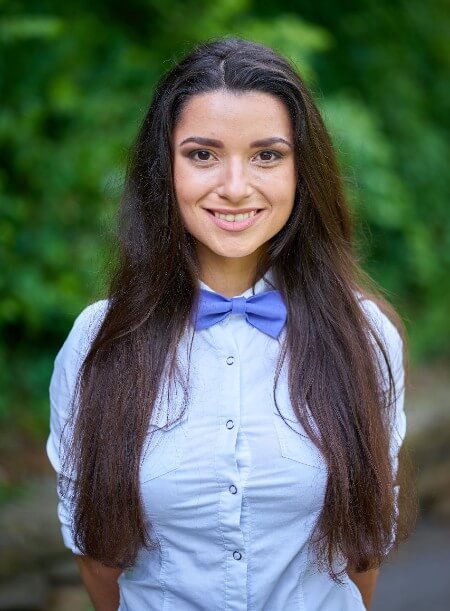
They are not alone. Although young, Telerik Academy School graduates have well-paying jobs, with every third earning well above the Sofia average, according to a 2021 Global Metrics report. This is thanks to the wide range of transferable skills students develop at the academy. Every fourth graduate occupies a senior role at their company.
Most academy graduates still in school say Telerik Academy School influenced their decision to continue their education in IT or a related field, with three out of every four graduates over 18 years currently pursuing IT-related majors at university. A number of them suggest that what they learned at the academy gives them a significant advantage over their university classmates and helps them breeze through some of the coursework.
This academic year, quality digital education will be available to more than 2,600 students in grades 1–12 as Telerik Academy School launches a record 130 courses in 41 towns across Bulgaria. This way, kids like Irina who want a future in tech no longer need to commute to Sofia to pursue their dreams.
Over the past three years, the academy has expanded its educational opportunities to 95% of Bulgaria’s regions, and more than 14,500 children and young adults have benefited from its programs thanks to support from the America for Bulgaria Foundation, individual and corporate donors, municipalities, schools, local institutions, and nonprofits.
The Global Metrics report points to this expansion as one of the biggest achievements of the program. Its outreach to smaller towns not only contributes to the development of individual participants there but also stimulates local economic growth, the report found.
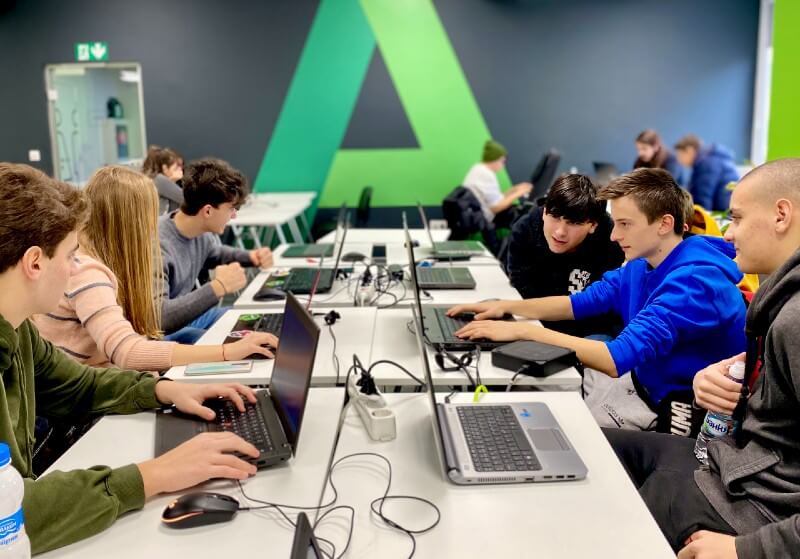
“We are happy that our programs provide students with equal access to the digital world and an opportunity to enter it, so that they are freer to decide on a future profession and a location from which to exercise it. Our goal is to help them succeed regardless of the field in which they choose to develop, because digital skills are key to any profession, now and in the future,” says Petar Sharkov, the academy’s executive director.
“Another important aspect of our work is the teachers in our courses; we work with outstanding professionals across the country, and this year our network already numbers 95 teachers. A total of 94% of these teachers say that they apply what they have learned at Telerik Academy School in their teaching outside it as well. This confirms that our work in the education system leads to positive change well beyond our programs,” Sharkov adds.
Educational change wasn’t what Telerik Academy founders Svetozar Georgiev, Boyko Yaramov, Vassil Terziev, and Hristo Kosev were after when they started the academy back in 2011. But just like their company Telerik — whose sale to Progress Software for $263 million in 2014 is still the largest tech deal in Bulgaria to date — the academy became a true game changer in the ICT field in Bulgaria.
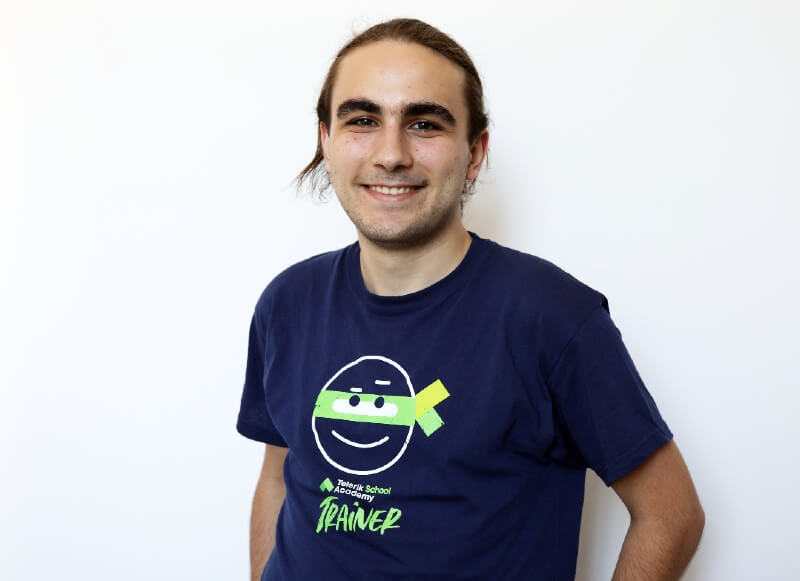
“When we started Telerik Academy School a decade ago we were confident that it would be useful, but that was the extent of it. We started timidly, with no grand expectations or a sense of what the long-term benefits would be. We also did not have the tools to measure success,” Svetozar Georgiev says.
“Gradually, with the development of the programs and their geographical expansion in Bulgaria, we began to see firsthand that the academy can literally change people’s lives, especially in the smaller places. There is no greater feeling than to ignite a spark in a child and direct them on the path to a promising profession,” he adds.
Importantly, Alexander, Irina, and Dimitar are pursuing their dreams in their home country — as are 93% of the 1,850 academy graduates who work in IT-related jobs, Global Metrics found. This is equal to about 5% of the IT workforce in Bulgaria, an impressive result for a single program.
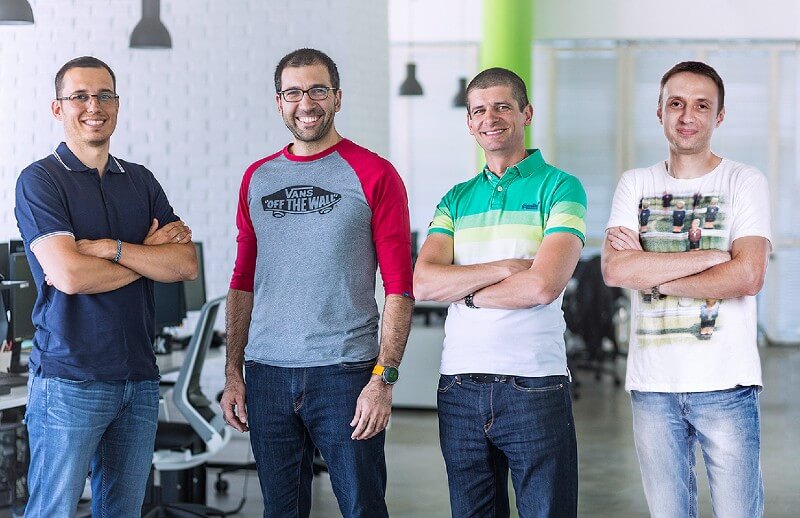
At this pace, we have no doubt that, in ten years’ time, most of Bulgaria’s engineers will have passed through Telerik Academy School programs — and that we will see some great things from them. Just look at where Alexander, Irina, and Dimitar are at age 20!
Not only that, but the academy’s programs might just be part of the solution to Bulgaria’s brain drain.
Find out more at: https://www.telerikacademy.com/school
Learn more about the impact of Telerik Academy School by reading a summary of the Global Metrics report.
